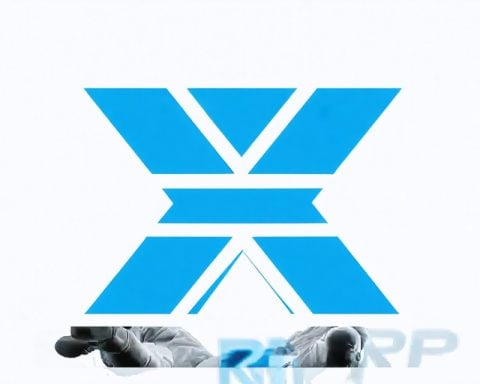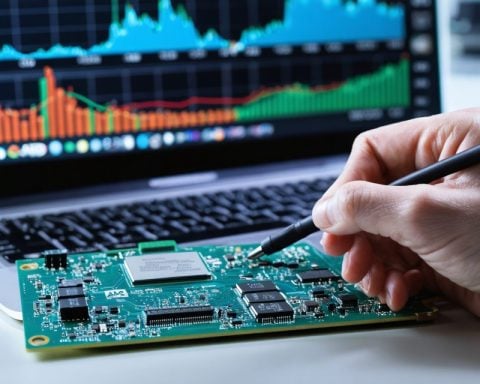Tech Giants Dive Into Robotics: The Rise of Humanoid and Commercial Robots
Leading South Korean tech firms, including Samsung Electronics, LG Electronics, and Hyundai Motor, are intensifying efforts to capitalize on the burgeoning robotics market. As industries increasingly seek automation for enhanced efficiency, these companies are pioneering advances in humanoid and commercial robots.
Samsung Electronics has significantly increased its investment in Rainbow Robotics, now holding a 35% stake in the company. By becoming the largest shareholder, Samsung aims to leverage Rainbow’s cutting-edge humanoid robot technology, integrating its own AI and software capabilities. This strategic move aligns with Samsung’s broader vision, announced in 2021, to invest heavily in burgeoning fields like robotics.
Similarly, Hyundai Motor is pushing boundaries in the robotics arena. Following its acquisition of Boston Dynamics in 2021, Hyundai has been developing innovative solutions in mobility. The company’s latest offering, the X-ble Shoulder robot, demonstrates their commitment to enhancing industrial productivity and creating safer work environments. Hyundai is set to roll out these robots in its automotive production facilities, with plans to extend their use to other sectors such as construction and aviation.
Meanwhile, LG Electronics is banking on the commercial robotics sector, marking it as a pivotal growth area. Over recent years, LG has unveiled a variety of commercial robots, most notably debuting self-driving guide robots at Incheon International Airport. Reinforcing its commitment, LG made a notable investment in Bear Robotics, a U.S. startup specializing in autonomous service robots.
Industry analysts anticipate the global industrial robot market to skyrocket to $88.55 billion by 2030, driven by the rising demand for automated solutions amid demographic challenges like aging populations. As global competition heats up, the strides made by these South Korean companies highlight their commitment to leading in the robotics revolution.
Unlocking the Future: The Role of Robotics in Transforming Industries
The Evolving Landscape of Humanoid and Commercial Robots
In an era characterized by rapid technological advancement, the robotics industry is capturing the attention of tech giants worldwide. Leading South Korean companies such as Samsung Electronics, LG Electronics, and Hyundai Motor are at the forefront of this revolution, each making strategic moves to solidify their foothold in the burgeoning robotics market. This push comes in response to escalated demand for automated solutions, driven by demographic shifts like aging populations and the quest for operational efficiency.
Strategic Investments and Innovations
Samsung Electronics has notably increased its stake in Rainbow Robotics to 35%, positioning itself as the largest shareholder. This strategic investment underscores Samsung’s commitment to integrating advanced humanoid robotics with its robust AI and software capabilities. This is part of its broader strategy to embrace emerging technologies such as robotics, which was highlighted in 2021.
Hyundai Motor, after acquiring Boston Dynamics, has been a trailblazer in mobility innovation. Their latest development, the X-ble Shoulder robot, is set to revolutionize industrial productivity and safety. The application of these robots in Hyundai’s automotive production facilities marks a significant leap towards automation, with anticipated expansion into sectors including construction and aviation.
LG Electronics, meanwhile, has set its sights on the commercial robotics sector. Following its significant investment in Bear Robotics, famous for autonomous service robots, LG is propelling forward with innovations like self-driving guide robots at Incheon International Airport. This move highlights LG’s strategic focus on growth within the commercial robotics segment.
Market Insights and Future Predictions
Industry analysts forecast the global market for industrial robots to reach an impressive $88.55 billion by 2030. This growth is fueled by an increasing need for automation solutions, especially considering demographic challenges such as aging workforces globally. The advancements undertaken by these South Korean companies not only showcase their technological prowess but also their ambition to steer the robotics revolution on a global scale.
The Future of Robotics: Trends and Expectations
The trend towards automation and robotics is expected to continue as industries seek greater efficiencies and enhanced capabilities. Innovations in AI, machine learning, and sensor technologies are likely to lead to more sophisticated and versatile robotic solutions. Whether in manufacturing, construction, or service industries, the integration of robots will be essential in addressing labor shortages and boosting productivity.
Conclusion
South Korean tech giants, with their strategic investments and cutting-edge innovations, are positioning themselves as key players in the global robotics industry. Their efforts highlight not just a response to current market needs, but a proactive approach to shaping the future landscape of industrial and service robotics. As the robotics market continues to grow, these companies are set to make significant contributions to technological and operational advancements across industries.
For more insights into the evolving world of robotic technologies, visit Samsung, Hyundai, and LG.
















